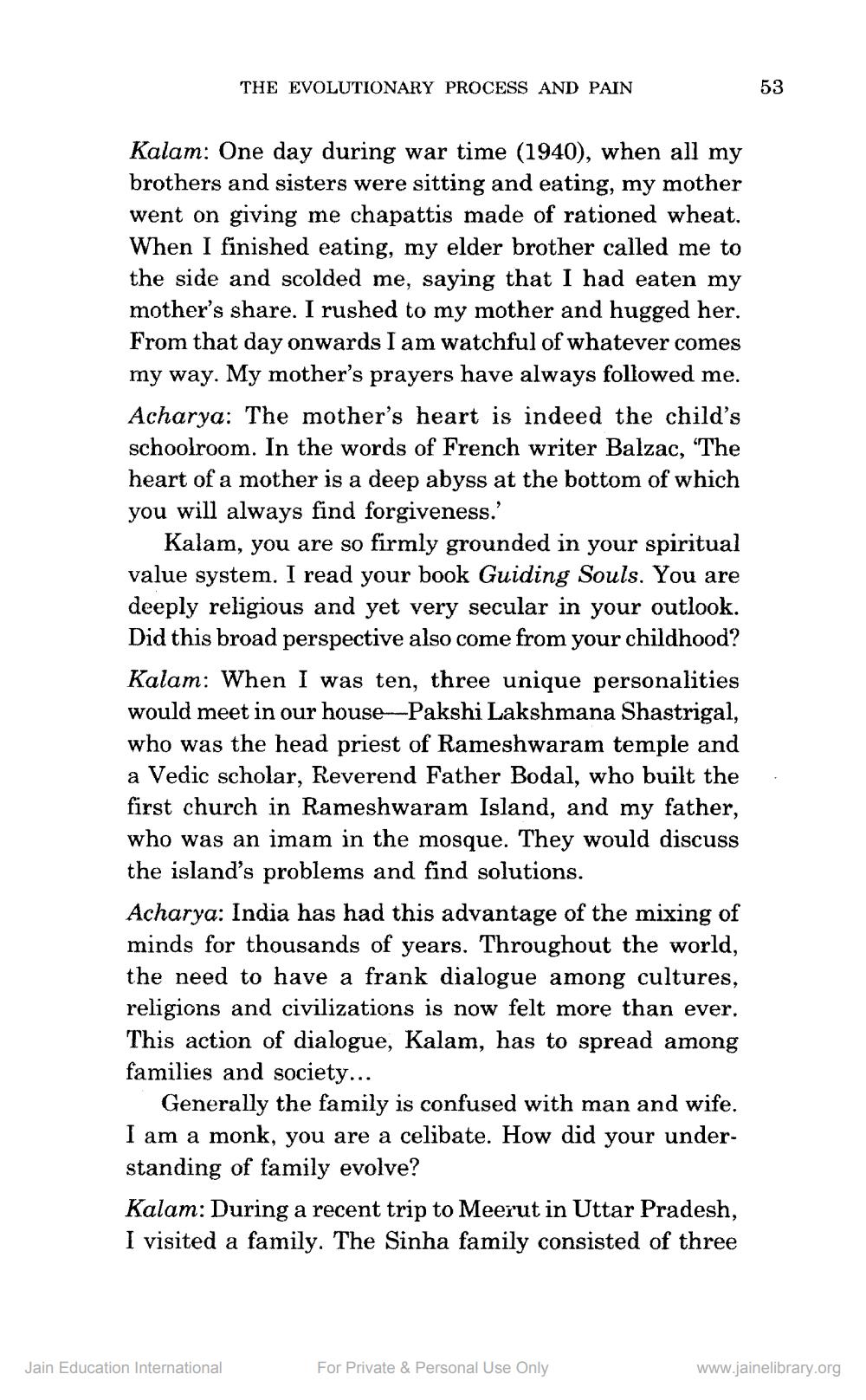________________
THE EVOLUTIONARY PROCESS AND PAIN
53
Kalam: One day during war time (1940), when all my brothers and sisters were sitting and eating, my mother went on giving me chapattis made of rationed wheat. When I finished eating, my elder brother called me to the side and scolded me, saying that I had eaten my mother's share. I rushed to my mother and hugged her. From that day onwards I am watchful of whatever comes my way. My mother's prayers have always followed me. Acharya: The mother's heart is indeed the child's schoolroom. In the words of French writer Balzac, "The heart of a mother is a deep abyss at the bottom of which you will always find forgiveness.'
Kalam, you are so firmly grounded in your spiritual value system. I read your book Guiding Souls. You are deeply religious and yet very secular in your outlook. Did this broad perspective also come from your childhood? Kalam: When I was ten, three unique personalities would meet in our house-Pakshi Lakshmana Shastrigal, who was the head priest of Rameshwaram temple and a Vedic scholar, Reverend Father Bodal, who built the first church in Rameshwaram Island, and my father, who was an imam in the mosque. They would discuss the island's problems and find solutions. Acharya: India has had this advantage of the mixing of minds for thousands of years. Throughout the world, the need to have a frank dialogue among cultures, religions and civilizations is now felt more than ever. This action of dialogue, Kalam, has to spread among families and society...
Generally the family is confused with man and wife I am a monk, you are a celibate. How did your understanding of family evolve? Kalam: During a recent trip to Meerut in Uttar Pradesh, I visited a family. The Sinha family consisted of three
Jain Education International
For Private & Personal Use Only
www.jainelibrary.org




